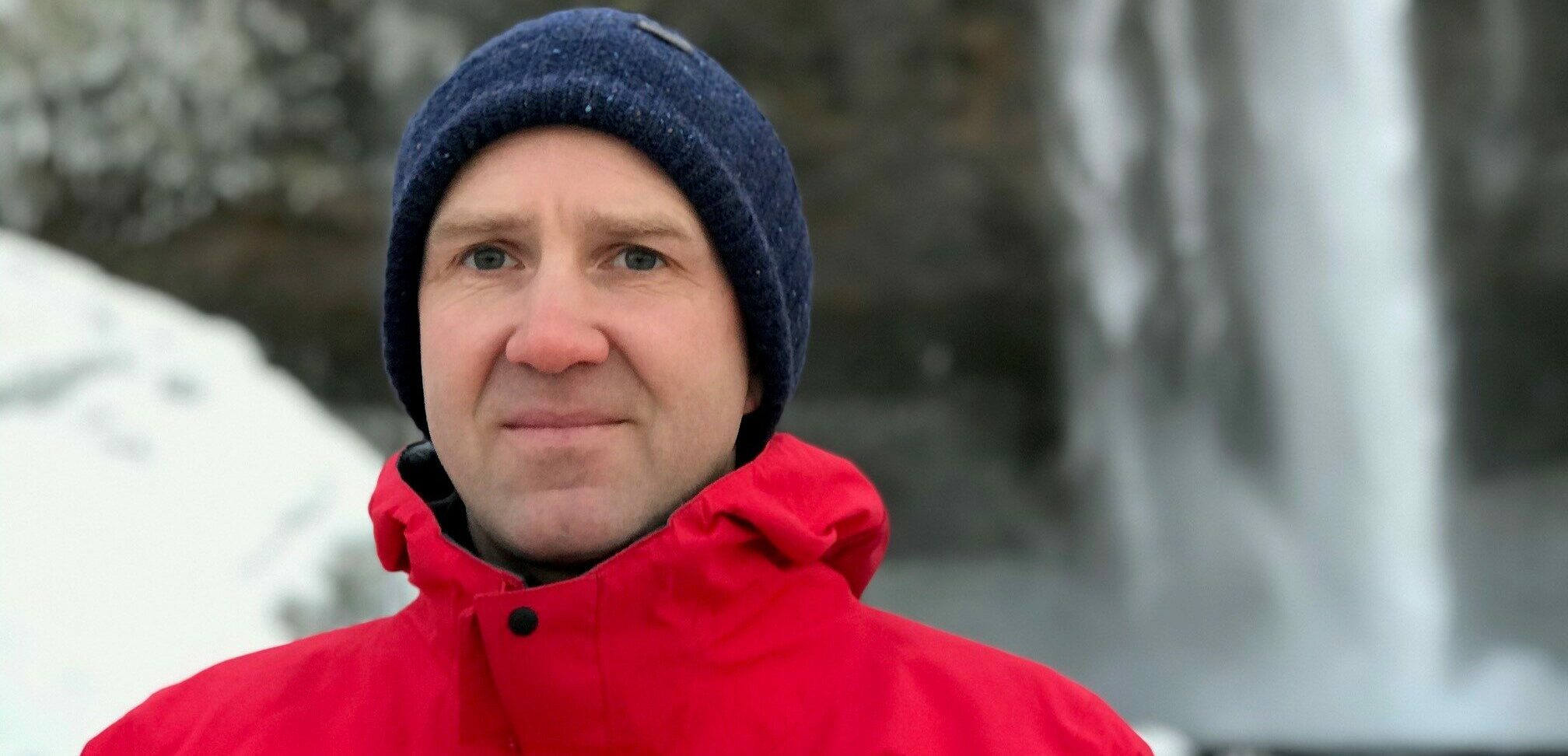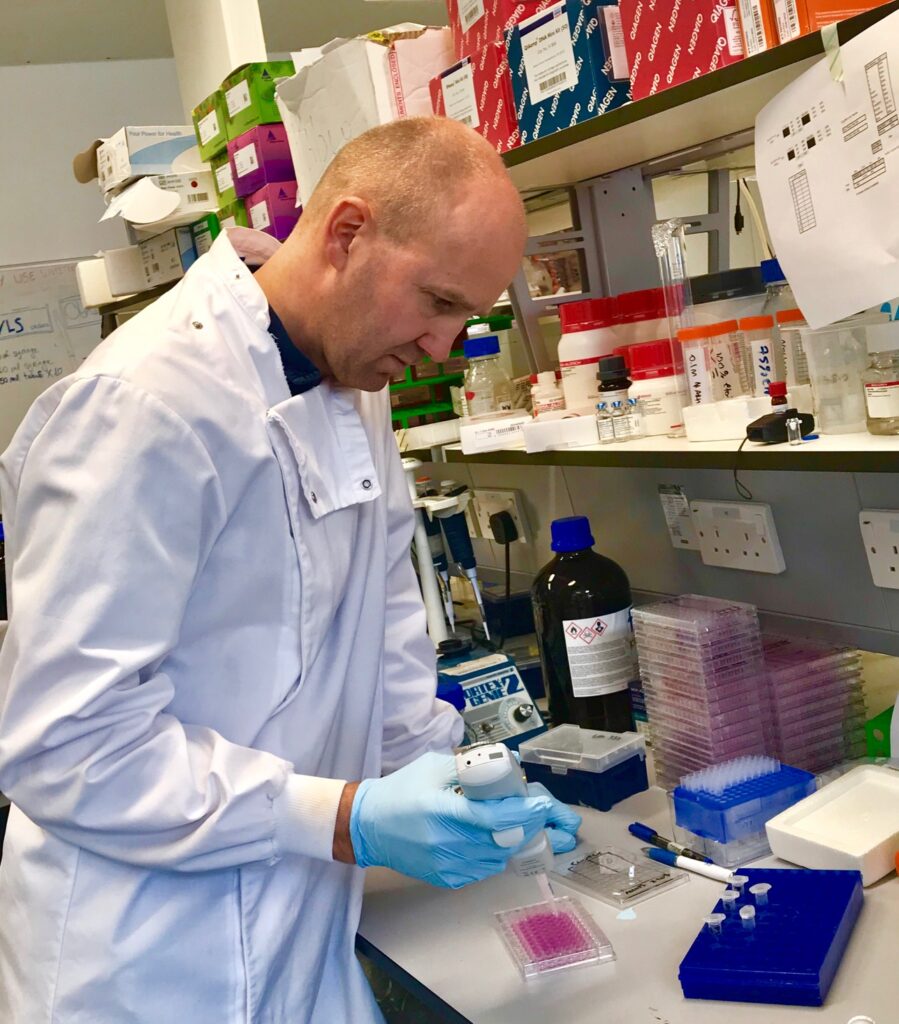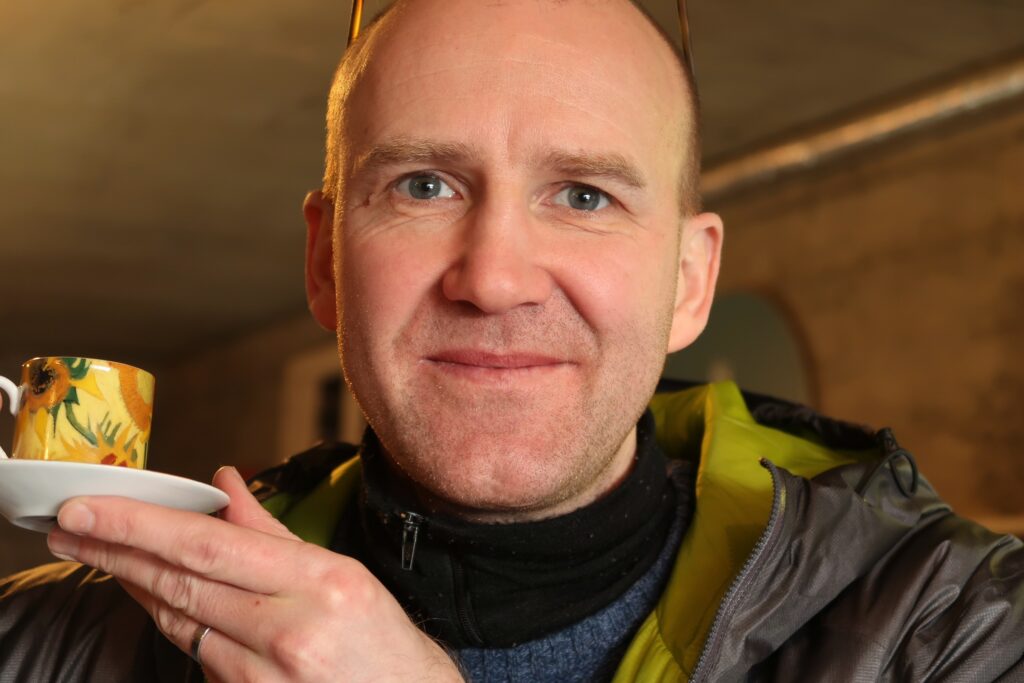
28 Nov 2022 Research
Leukaemia UK John Goldman Fellow awarded Professorship
Talented blood cancer researcher, Vignir Helgason, was awarded a Leukaemia UK John Goldman Fellowship in 2015, for his research into chronic myeloid leukaemia (CML). Since then, his research career has gone from strength to strength and this year he was awarded a Professorship.
This is a huge achievement for Professor Helgason, who works at the University of Glasgow, demonstrating his continued contribution to the field of blood cancer research and the excellence of his research.
Professor Helgason’s progression to the role of Professor demonstrates the significant impact that a John Goldman Fellowship can have. The award accelerates the career of an early-career researcher, providing them with the springboard to continue to progress their work.
Professor Helgason’s Research
Professor Helgason’s research focuses on chronic myeloid leukaemia (CML), specifically leukaemic stem cells (LSCs). These cells are resistant to current treatments, not only in CML, but across other types of leukaemia too.
His research is trying to identify vulnerabilities in these LSCs, so they can be eradicated with combination therapies – combining drugs that already work well, but aren’t effective in eradicating LSCs, with those that can target the LSCs too.
You can read more about Professor Helgason’s research here.
Q and A with Professor Helgason
Professor Helgason kindly took time out of his busy schedule to speak to us about his research career so far, his hopes for the future of CML treatment, as well as some tips for early career researchers.
Congratulations on your professorship. Could you tell us a bit about your career up to this point?
I started my lab nine years ago, back in 2013, at that time I had two members of staff. Receiving my John Goldman Fellowship in 2016 meant that I was able to extend the contract of one of my post doc researchers.
Over the years I’ve made progress in my own academic career, being promoted to Senior Lecturer in 2018, Reader in 2020 and now Professor in 2022. Alongside this, my team has also expanded – from three to around 10/11 of us.
And I now have a CRUK Programme Foundation Award of £1.3 million. This is the most significant award I’ve received to date. I’ve been building my experience and my research team to allow me to be competitive for these larger grants, which provide some stability to allow us to continue the research and what I’ve been building towards since the beginning. The John Goldman Fellowship, amongst other grants and awards, was an important part of the journey in getting to this point.
Could you give us an overview of your current research?
My research focuses on chronic myeloid leukaemia (CML), specifically leukaemic stem cells (LSCs). These cells are resistant to current treatments, not only in CML, but across other types of leukaemia too.
Our research is trying to identify vulnerabilities in these LSCs, so they can be eradicated with combination therapies – combining drugs that already work well, but aren’t effective in eradicating LSCs, with those that can target the LSCs too.
CML is a good place to start, as it’s a great research model. We believe any findings we make in CML could be important for other leukaemias too.
We’ve already made a huge amount of progress and we’re now at the point where we need to increase understanding of the biology of these LSCs.
We’re focusing on two important functions within the cells:
- Metabolism – how LSCs digest and use nutrients
- Autophagy – how LSCs recycle nutrients and get rid of toxic materials
We are looking for vulnerabilities within these functions, so that we can find new ways to either kill the LSCs or make them more sensitive to treatment.
 What’s next for your research and what could this mean for patients?
What’s next for your research and what could this mean for patients?
My aim for the next few years is to maintain the momentum, generate more impact from our research and continue to get investment into the team. We’re ultimately aiming to get our findings translated into the clinic, so we’re exploring the possibility of clinical trials for some of the discoveries we’ve already made.
The aim is to generate a good pre-clinical package that can be tested in trials. If we are ultimately able to increase the percentage of people that go into treatment-free remission (when a patient stops treatment and tests don’t show any abnormal white blood cells), that would be amazing.
This goal won’t be achievable for everyone with CML. Some patient populations become resistant to treatment and their cancer relapses. I’d also like to see progress in resensitising these patients to treatment, so that it’s more effective.
Do you have any advice for early career researchers?
Appreciate that good research requires good team work. So focus on your team and the way your team interacts with other teams. Enjoy the process. It is challenging and it can be stressful but you need to have the enthusiasm and curiosity, be interested and enjoy it.
Collaborate and be collaborative. Surround yourself with people that can help you – from PHD students to senior colleagues. If you build a team of individuals all aiming for the same goal and they are all driven, interested and inspired then you create a good atmosphere, then people will want to apply and work within that environment.
Could you give us a flavour of your life outside of your research?
I like sports, especially football. I used to play for my home team back in the day, back in Iceland. I also really enjoy hill walking in Iceland and the Scottish highlands. The rest of my time is spent with my family and focusing on my work.
Related posts
9 November 2017
Leukaemia UK is the new name for the ‘Elimination of Leukaemia Fund’
We are a leading charity making a difference to families affected by leukaemia, lymphoma, myeloma and other blood cancers.
25 June 2019
Championing groundbreaking therapies and emotional support
We are proud to be at the forefront of funding innovative research into gene therapy treatments
31 October 2023
Chris Dew joins Leukaemia UK as Director of Finances & Resources
Leukaemia UK is delighted to announce the appointment of Chris Dew as Director of Finance & Resources, following ten years as Chief Financial Officer at musical therapy charity Nordoff-Robbins. The…
29 February 2024
Nurse who made throwaway comment before blood cancer diagnosis welcomes new research boost into ‘Natural Killer’ cells
A former nurse, midwife, health visitor and NHS manager is welcoming new research into her particular blood cancer, after not recognising her mystery symptoms were leukaemia. Kay Cutting, from Seaham…
